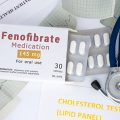
BPT
Sponsored by Bayer
According to the American Heart Association, one in four heart attack or ischemic (clot-related) stroke survivors will have a second heart attack or clot-related stroke.1
To help prevent a second heart attack or clot-related stroke, lifestyle changes and communicating closely with your health care team can help make a difference. Taking the right medications for your unique needs can also help lower the chance of experiencing another cardiovascular event.
Preventing second heart attacks or clot-related strokes
The American Heart Association suggests five steps to lower your risk of a second heart attack or clot-related stroke2:
* Take medications as prescribed
* Attend follow-up appointments
* Participate in cardiac rehabilitation
* Create a support network
* Manage risk factors (such as high blood pressure, high cholesterol and diabetes)
Take medications as prescribed
Certain medicines can greatly help lower your risk of another cardiovascular event, which may include beta-blockers, antithrombotic, ACE inhibitors and statins.3 Additionally, an over-the-counter doctor recommended aspirin regimen can help lower your risk of another heart attack or ischemic stroke.
Aspirin is not appropriate for everyone, so be sure to talk to your doctor before you begin an aspirin regimen.
Aspirin has long been a recommended doctor-directed treatment to help prevent another heart attack or clot-related stroke. The U.S. Preventive Services Task Force (USPSTF) recently updated their guidelines to refine who should be taking low-dose aspirin. However, this update does not include patients who take aspirin to help prevent a second heart attack or clot-related stroke.
As a reminder, no one should start, stop or modify an aspirin regimen without first speaking with their doctor. By looking at your personal health history, risk factors and other considerations, your doctor can best advise you on what’s right for you.
“For those who do have a diagnosis of heart disease, aspirin may be recommended to help prevent a second heart attack or clot-related stroke. If your doctor has advised that you take aspirin, speak to your physician before discontinuing any medication,” says Darria Long Gillespie, MD, emergency room physician and Bayer® Aspirin paid spokesperson.
Keep in mind, suddenly discontinuing any medication may have consequences. For reference, stopping a doctor-directed aspirin regimen without talking with your doctor may increase risk for another heart attack by 63%.4
Attend follow-up appointments
It is important to attend follow-up doctor appointments to continue to monitor health.
Ongoing, clear communication with your physician is important. If your health changes or you have any questions, it’s important to reach out by phone or make an in-person appointment. This is especially critical when starting or stopping any medication, including over-the-counter medications, such as aspirin.
Participate in rehabilitation
Cardiac rehabilitation can help change your heart’s future. It is a medically supervised program to help improve your cardiovascular health if you have experienced a heart attack. Rehabilitation can include exercise training, emotional support and education about lifestyle changes to reduce your chance of a second heart attack.
Rehabilitation is also a key part of stroke recovery. Though it doesn’t reverse the effects of a stroke, it can help rebuild your strength and confidence to return to independent living. Under your doctor’s direction, stroke rehabilitation specialists can provide a treatment program suited to your needs, such as physical therapy, occupational therapy, support groups and more.
Create a support network
Reach out to someone you trust, such as a friend or family member, to call or text you every day to remind you to take your medications and keep you accountable.
Manage risk factors (such as high blood pressure, high cholesterol and diabetes)
After you experience a heart attack or clot-related stroke, managing risk factors, like blood pressure, cholesterol and diabetes, through diet and exercise can help improve overall health. Regular exercise can include taking brisk walks, swimming and biking. A heart-healthy diet includes eating more fruits, vegetables and whole grains, reducing unhealthy fat and sodium intake and portion control.5
With a proactive mindset and open communication with your doctor, including conversations about medications, you can help lower your chances of a second heart attack or clot-related stroke.
Sources:
1. “One is Enough” https://www.heart.org/en/health-topics/heart-attack/life-after-a-heart-attack
2. “5 ways to prevent another heart attack” https://www.heart.org/en/health-topics/heart-attack/life-after-a-heart-attack
3. “Managing Your Medicines” https://www.heart.org/en/health-topics/cardiac-rehab/managing-your-medicines
4. García Rodríguez LA, Cea-Soriano L, Martín-Merino E, Johansson S. BMJ. 2011;343:d4094
5. “Heart-healthy diet: 8 steps to prevent heart disease” https://www.mayoclinic.org/diseases-conditions/heart-disease/in-depth/heart-healthy-diet/art-20047702
















Leave a Comment